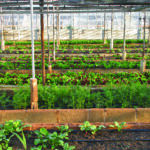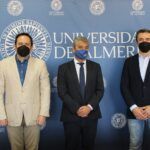Green Deal Going Local working group calls for stronger political engagement and targeted communication with citizens to accelerate a just and inclusive transition towards climate-neutrality
Fostering political engagement and increasing citizens’ awareness of the benefits of the transition towards climate-neutrality are two key priorities of the European Committee of the Regions’ (CoR) Green Deal Going Local working group. The CoR calls on local and regional leaders to join the new network of Climate Pact Ambassadors and take part in a structured system to collect cities’ and regions’ climate commitments ahead of the UN’s COP26 climate talks in Glasgow and the UN’s COP15 biodiversity summit in Kunming, China. New actions complement ongoing efforts to accelerate the rollout of the European Green Deal in every territory as Member States are submitting their COVID-19 recovery plans.
After the launch of the Green Deal Going Local working group in June 2020, the European Committee of the Regions is stepping up its efforts to support cities and regions with the delivery of a just and inclusive transition towards climate-neutrality by 2050. The focus is on facilitating access to EU funds and inspiring the replication of Green Deal projects through the exchange of knowledge and best practices.
Members exchanged views on three dossiers related to the international dimension of the European Green Deal.
Juan Espadas (ES/PES), Mayor of Seville and Chair of the CoR’s ENVE commission and of the Green Deal Going Local working group, said: “With the Green Deal, the EU puts sustainability at the heart of its agenda, both in Europe and in the world. Cities and regions contribute to the Green Deal’s external dimension by cooperating at the global level and committing to its objectives. As they are at the forefront of building a sustainable and just recovery, they can use their collective voice and individual actions to ensure their role is taken into account and to push for a global agenda that reduces inequalities and addresses the climate crisis.”
On climate, Vincent Chauvet (FR/Renew Europe), Mayor of Autun and rapporteur of the CoR opinion on Stepping up Europe’s 2030 climate ambition towards COP26, said: “As local leaders, we welcome the agreement to raise the EU’s climate ambition to reduce a minimum of 55% of greenhouse gas emissions by 2030. However, cities’ and regions’ climate commitments and achievements are currently not being taken into account. We must acknowledge our contribution in changing the way we live, move and work while setting up comparable data and targets so our efforts are formally acknowledged and counted.”
Regarding the implementation of the Sustainable Development Goals, Ricardo Rio (PT/EPP), Mayor of Braga and rapporteur of the CoR opinion on Delivering on the Sustainable Development Goals by 2030, said: “There is growing interest from villages, towns, cities and regions for the integration of the Sustainable Development Goals (SDGs) at the core of their long term strategies and daily political decisions. We have observed a gradual decline of the SDGs’ centrality in the EU’s narrative. This is the moment to give a boost to the SDGs and reinstate them at the core of the EU directives and policies.”







Leave a Reply